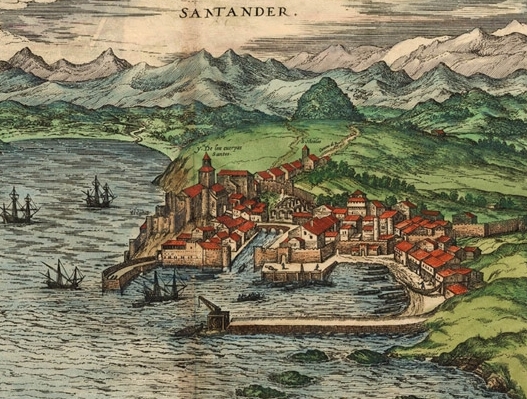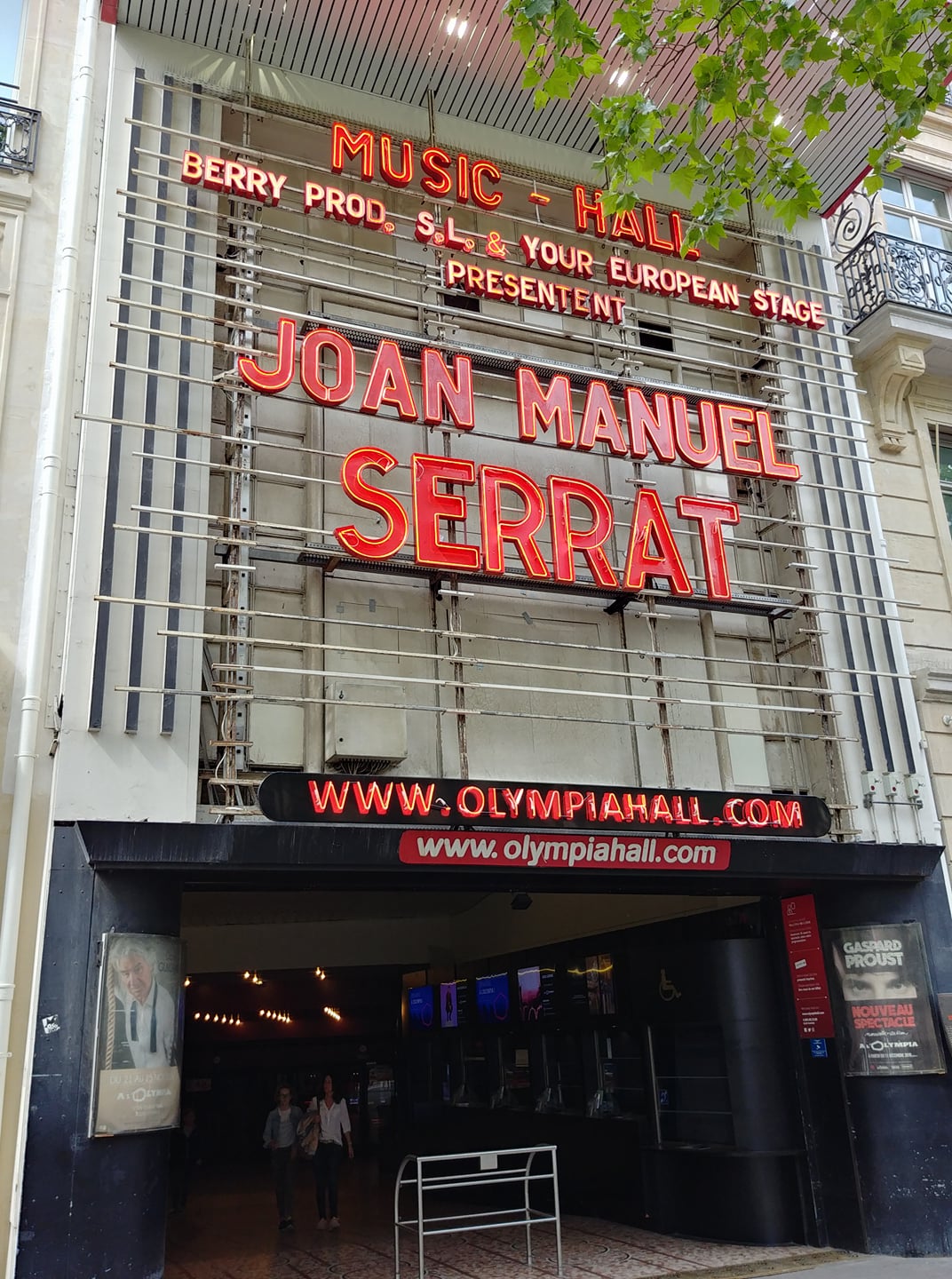|
Juan Carlos Calderón
Juan Carlos Calderón López de Arróyabe (7 July 1938 – 25 November 2012) was a Spanish singer-songwriter and musician. Born in Santander, he was the author of "Eres tú", which, performed by Mocedades, came second in the Eurovision Song Contest 1973. It was an important hit in several countries, including the United States. He wrote another three Eurovision entries: " Tú volverás" by Sergio y Estíbaliz in 1975, " La fiesta terminó" by Paloma San Basilio in 1985, and " Nacida para amar" by Nina in 1989; as well as an entry for the OTI Festival: "Amor de medianoche", which ended up runner-up in 1975 performed by Cecilia. He also wrote music for several movies, including the horror films '' Vengeance of the Zombies'' (1973) and '' Blue Eyes of the Broken Doll'' (1974). In 1968 he won an Ondas Award. He wrote songs for artists like Luis Miguel (who received a nomination for Song of the Year at Latin Grammy Awards in 2000 with a Calderón song, " O Tú o Ninguna"), ... [...More Info...] [...Related Items...] OR: [Wikipedia] [Google] [Baidu] |
Santander, Spain
Santander ( , ; ) is the capital of the Autonomous communities of Spain, autonomous community of Cantabria, Spain. It has a population of 172,000 (2017). It is a port city located in the northern coast of the Iberian Peninsula, facing the Cantabrian Sea. It is believed to have been a port since ancient times, due to its favourable location, and is documented as far back as the 11th century. Much of the old city was lost in the 1941 Santander fire, Great Fire of 1941. The city was then rebuilt realizing Francoist ideals of social segregation. Today, its remaining old town, beach and other attractions are popular with tourists and other visitors and its economy is mainly service based. The port is still very active and a regular ferry service operates to the United Kingdom. Fish and seafood dominate the local cuisine. Santander notably houses the headquarters of multinational bank Banco Santander, which was founded there. The city has a Santander, Spain#Climate, mild climate typic ... [...More Info...] [...Related Items...] OR: [Wikipedia] [Google] [Baidu] |
Nacida Para Amar
"Nacida para amar" (; "Born to Love") is a song recorded by Spanish singer Nina, written by Juan Carlos Calderón. It in the Eurovision Song Contest 1989, placing sixth. Mexican singer Luis Miguel recorded a cover version of the song with new lyrics titled "Amante del amor" for his 1990 album '' 20 Años''. Background Conception "Nacida para amar" was composed by Juan Carlos Calderón. It is a sensual love song, describing a romantic night with a lover. Thanking for that special night they spent "body-to-body" and being grateful for their relationship. Calderón had already participated in Eurovision as a songwriter with Mocedades' entry "Eres tú", Sergio and Estíbaliz's entry " Tú volverás", and Paloma San Basilio's entry "La fiesta terminó". Eurovision On 29 March 1989, (TVE) announced that they had internally selected "Nacida para amar" sung by Nina as for the of the Eurovision Song Contest to be held in Lausanne, Switzerland. On 6 May 1989, the Eurovision ... [...More Info...] [...Related Items...] OR: [Wikipedia] [Google] [Baidu] |
Joan Manuel Serrat
Joan Manuel Serrat Teresa (; born 27 December 1943) is a Spanish musician, singer, and composer. He is considered one of the most important figures of modern, popular music in both Spanish and Catalan languages. Serrat's lyrical style has been influenced by other poets such as Mario Benedetti, Antonio Machado, Miguel Hernández, Rafael Alberti, Federico García Lorca, Pablo Neruda, and León Felipe. He has also recorded songs by Violeta Parra and Víctor Jara. Serrat was one of the pioneers of what is known in Catalan as " Nova Cançó" (Nueva Canción). Joan Manuel Serrat is also known by the names "El noi del Poble-sec" and "El Nano". Biography Childhood Joan Manuel Serrat Teresa was born 27 December 1943 in the Poble-sec neighbourhood of Barcelona, to members of a working family. His father, Josep Serrat, was a Catalan anarchist affiliated with the CNT and his mother, Ángeles Teresa, a housewife, was from Belchite, Zaragoza in the region of Aragon. His childhood a ... [...More Info...] [...Related Items...] OR: [Wikipedia] [Google] [Baidu] |
Julio Iglesias
Julio José Iglesias de la Cueva (; born 23 September 1943) is a Spanish singer and songwriter. Iglesias is recognized as the most commercially successful Spanish singer in the world and one of the top List of best-selling music artists, record sellers in music history, having sold more than 300 million records worldwide in 14 languages. It is estimated that during his career he has performed in more than 5,000 concerts, for over 60 million people in five continents. In April 2013, Iglesias was inducted into the Latin Songwriters Hall of Fame. In 1983, Iglesias was credited as having recorded songs in the most languages in the world, and in 2013 for being the List of best-selling Latin music artists, best-selling male Latin artist of all-time. In April 2013 in Beijing, he was honoured as the most popular international artist in China. In Brazil, France, Italy and elsewhere, Iglesias is the most successful foreign record seller, while in his home country, Spain, he has sold the ... [...More Info...] [...Related Items...] OR: [Wikipedia] [Google] [Baidu] |
O Tú O Ninguna
"O Tú o Ninguna" () is a song written by Juan Carlos Calderón and produced and performed by Mexican singer Luis Miguel. The song is a bolero in which the protagonist cannot envision his life without anyone else besides his love interest. It was released as the second single from the album '' Amarte Es un Placer'' on 6 September 1999. The track topped the US ''Billboard'' Hot Latin Songs chart; and reached the top-five in Guatemala, Nicaragua and Panama. "O Tú o Ninguna" received positive reviews from music critics who praised Miguel's delivery. It received a Latin Grammy nomination for Song of the Year in 2000. Calderón received an ASCAP Latin Award for the song in the same year. A music video for the track was filmed in San Francisco, California and directed by Rebecca Blake. In the video, Miguel searches for his love interest amidst a large crowd in the city. Background and composition In 1997, Luis Miguel released his twelfth studio album '' Romances'', the third rec ... [...More Info...] [...Related Items...] OR: [Wikipedia] [Google] [Baidu] |
1st Annual Latin Grammy Awards
The 1st Annual Latin Grammy Awards were held in Los Angeles at the Staples Center on Wednesday, September 13, 2000. The big winners were Luis Miguel, Santana and Maná with 3 awards; Juan Luis Guerra, Shakira, Fito Páez and Emilio Estefan Jr. received 2 awards each. Winners were chosen by voting members of the Latin Academy from a list of finalists. The inaugural ceremony was broadcast live on CBS that year and was seen in more than 100 countries across the world. The two-hour show was the first bilingual broadcast ever to air on network television during prime time. History On January 20, 2000, the Latin Academy of Recording Arts & Sciences announced that the inaugural Latin Grammy Awards were going to take place on September 15, 2000, in Los Angeles and the awards ceremony would be broadcast in the United States by CBS, which will also distribute it to other countries. Nominations in 40 categories were to be released in August 2000. The list of nominees for the 1st Annual ... [...More Info...] [...Related Items...] OR: [Wikipedia] [Google] [Baidu] |
Latin Grammy Award For Song Of The Year
The Latin Grammy Award for Song of the Year is an honor presented annually at the Latin Grammy Awards, a ceremony that recognizes excellence, creates a wider awareness of cultural diversity and contributions of Latin recording artists in the United States and internationally. The award is given to the songwriters of new songs containing at least 51% of lyrics in Spanish or Portuguese language. Instrumental songs or a new version of a previously recorded track are not eligible. Due to the increasing musical changes in the industry, from 2012 the category includes 10 nominees, according to a restructuration made by the academy for the four general categories: Album of the Year, Record of the Year, Best New Artist and Song of the Year. Seventeen awarded songs have also earned the Latin Grammy for Record of the Year, which unlike this category, is given to songs that were released on a promotional level, and the prize is given to the performer, producer and audio engineer. The exce ... [...More Info...] [...Related Items...] OR: [Wikipedia] [Google] [Baidu] |
Luis Miguel
Luis Miguel Gallego Basteri (; born 19 April 1970) is a Mexican singer and record producer. Born in Puerto Rico to an Italian mother and a Spanish father, he is often referred to as Honorific nicknames in popular music, ''El Sol de Mexico'' (The Sun of Mexico), derived from the nickname his mother gave him as a child: "Mi sol" (My sun). Luis Miguel has sung in multiple genres and styles, including Latin pop, pop songs, Latin ballad, ballads, boleros, Tango (flamenco), tangos, jazz, big band, and mariachi. Luis Miguel is also recognized as the only Latin singer of his generation not to cross over to the Anglo market during the "Latin Explosion" in the 1990s. Despite recording only in Spanish language, Spanish, Luis Miguel continued to be the List of best-selling Latin music artists, best-selling Latin artist in the 1990s, and was credited for popularizing the bolero genre within the mainstream market. He has sold around 60 million records worldwide, making him one of the List ... [...More Info...] [...Related Items...] OR: [Wikipedia] [Google] [Baidu] |
Premio Ondas
The Premios Ondas (Spanish: literally "wave awards", also known in English as the Ondas Awards or simply The Ondas) have been given since 1954 by Radio Barcelona, a subsidiary of Cadena SER, in recognition of professionals in the fields of radio and television broadcasting, the cinema, and the music industry.''Billboard'' - 14 November 1998 - Page 60 "The Ondas began as a radio-only event but over the years incorporated cinema, TV, and music." Past winners have included R.E.M., U2, The Corrs, Eric Clapton, the Red Hot Chili Peppers, Cher, Gloria Estefan, Miguel Bosé, Luz Casal, Phil Collins, Joaquín Sabina, Mecano, Ketama, Coldplay, Ricky Martin, Mikael Bertelsen & Roger Moore Sir Roger George Moore (14 October 192723 May 2017) was an English actor. He was the actor to portray Ian Fleming's fictional secret agent James Bond (literary character), James Bond in the Eon Productions/MGM Studios film series, playing the .... References External links * Awards e ... [...More Info...] [...Related Items...] OR: [Wikipedia] [Google] [Baidu] |
Blue Eyes Of The Broken Doll
''Blue Eyes of the Broken Doll'' () is a 1973 Spanish horror-giallo film directed by Carlos Aured and starring Paul Naschy (who also wrote the film), Diana Lorys, Maria Perschy, and Eva Leon. The film was shown theatrically in Spain in August 1974 as ''Los Ojos Azules de la Muñeca Rota''. It was released theatrically in the U.S. and on VHS Home Video as ''The House Of Psychotic Women'' (slightly edited), and was shown on U.S. late-night television as ''House of Doom'' (in an even more edited version). The film was shown in Belgium as ''Mystery of the Blue Eyes''. Most prints are missing a brief scene where a pig is slaughtered on a farm. Today the film is readily available complete and unedited on DVD and Blu-ray as ''The Blue Eyes of the Broken Doll''. While not prosecuted for obscenity, the film was seized and confiscated in raids in the UK under Section 3 of the Obscene Publications Act 1959 during the video nasty panic, probably due to the lurid video box art. Strangel ... [...More Info...] [...Related Items...] OR: [Wikipedia] [Google] [Baidu] |
Vengeance Of The Zombies
''Vengeance of the Zombies'' (/ ''Rebellion of the Dead Women'') is a 1972 Spanish horror film directed by León Klimovsky and starring Paul Naschy, Mirta Miller, Vic Winner and Aurora de Alba. The film was shot in July 1972, but was only theatrically released in Spain (as ''La rebelión de las muertas'') in June 1973. It was shown in Italy as ''La Vendetta dei Morti Viventi''. The film was shown in Germany over the years under three different titles....''Rebellion of the Living Dead'' (Feb. 1974 German release title), ''Invocation of the Devil'' (April 1974 German re-release title to compete with ''The Exorcist'') and ''Blood Lust of the Zombies'' (1980 German re-release title to compete with ''Dawn of the Dead''). It was released in the U.S. as ''Vengeance of the Zombies'' in December 1973, on a double bill with another Klimovsky film ''The Dracula Saga''. It was famously re-released in the U.S. later in 1980 under the title ''Walk of the Dead'', with distributor Independent Ar ... [...More Info...] [...Related Items...] OR: [Wikipedia] [Google] [Baidu] |
Cecilia (Spanish Singer)
Evangelina Sobredo Galanes, known as Cecilia, (11 October 1948 – 2 August 1976) was a Spanish singer-songwriter. She took her stage name from the song "Cecilia" by Simon and Garfunkel. Biography The daughter of diplomats, she was born in Madrid, spent her childhood in several countries (Spain, The United Kingdom, The United States, Jordan, Portugal) and was raised by an American nun. She attained a bachelor's degree in law in Spain before deciding to dedicate herself to music and composition. Her ironic and lyrical songs, sung in a tiny voice, contributed to the existentialist and feminist movements of Spanish ''canciones protestas'' (''protest songs'') of the 1960s and 1970s. Career Her first steps in the music field were with the group Expresión, featuring and . She wrote and sang in English. This band only published a single in 1970. In 1971 she signed up a contract as a solo artist with CBS-Spain. Julio Seijas remained as a collaborative musician on Cecilia´s band. ... [...More Info...] [...Related Items...] OR: [Wikipedia] [Google] [Baidu] |



